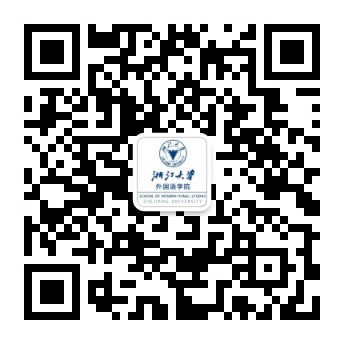Have you ever visited the Palace of Nations on the banks of Lake Geneva and facing the Alps from afar? High summer arrives after Slight Heat. Although it was still in the midst of the pandemic, students from Zhejiang University had the honor to “visit” the Palace of Nations. On July 13, the United Nations Summer School, jointly organized by ZJU and UNITAR officially opened. The opening ceremony and the first webinar were held successfully. The summer school, sponsored by the students’ international exchanges scholarships of Undergraduate School and the International Summer School and the International Workshop of Graduate School, attracted 53 undergraduates, graduates and doctoral students from 23 majors of 15 schools.

Established in 1963, UNITAR, as the highest-level executive body directly under the United Nations General Assembly, mainly undertakes two functions in the UN system: training and research. Among them, the training function seeks to enhance international talents engaging in multilateral and bilateral activities through international training and international conferences so as to promote global cooperation for the common development of all mankind.
In September 2019, Wu Zhaohui, President of Zhejiang University, paid a special visit to UNITAR in Geneva and signed a comprehensive strategic cooperation agreement on behalf of Zhejiang University. Due to the pandemic, the first summer school was held online. The curricula were specially designed by UNITAR for Zhejiang University and jointly created by the two sides. In accordance with the requirement of equipping students with “overseas experience” for talent training in Zhejiang University, this tailor-made training program boosts students’ knowledge, improves their ability, quality and personality, so as to serve the “Double First-class” Initiative of Zhejiang University and Chinese national strategy.
Guided by Julian Caletti, the specialist on United Nations system and career development of UNITAR, students from Zhejiang University had a digital tour of the Palace of Nations and started their online UN journey across time and space. First, Julian Caletti gave a very warm welcome to the students, and then Robih Haddad, director of UNITAR, gave his opening speech. Robih Haddad put forward a keyword—“Multilateralism” in the context of great global changes. He stated that multilateralism, meaning helping each other within a system, is of great importance in the face of COVID-19 pandemic and climate change crisis. He stressed that these global required global solutions and joint efforts of all mankind as we are a community with shared future.

Robih Haddad, director of UNITAR making a speech
Then Professor Xu Xueying, director to Development Planning Department of the Secretariat of the Global Competency Center of Zhejiang University and core supervisor of the Global Engagement Program of Zhejiang University expressed her heartfelt thanks to UNITAR for believing in and choosing Zhejiang University, and also her gratitude to every staff member. Professor Xu mentioned that this was the first time Zhejiang University had cooperated with UNITAR, and hoped that all the students could take advantage of this precious opportunity to listen attentively and ambitiously, demonstrate the quintessence of Zhejiang University, and become useful members to the society as well as contribute their own efforts to make the world a place where various values coexist in harmonious sharing.

Ms. Xu Xueying delivering a speech
After brief opening remarks, Julian Caletti outlined the five goals of this program: 1. to explain key components of the UN system and its agencies; 2. to talk about skills in international affairs; 3. to make students understand the importance of conference and protocols; 4. to talk about the diplomacy future; 5. to talk about values and principles. Then Julian became our live-streamed tour guide with a camera in hand to show us around the Palace. The wall paper was blue engraved with the United Nations Emblem—a world map representing an azimuthal projection centered on the North Pole and surrounded by the wreath of olive branches. Julian explained the ingenuity of the design is that no country is at the center and the color of white and blue, images of pigeon and olive branches symbolize peace and harmony. Moreover, the paintings on the wall showed the damages brought by the war and we humankind should unite and bridge the gaps to avoid wars.


It is worth mentioning that the “Temple of Heaven Tapestry” presented by China to the United Nations is hanging in the Palace of Nations. “The beauty of the tapestry”, added by Professor Xu Xueying, “is that no matter from which direction you look at it, the stairs of the Temple are always facing you, which is very eye-catching.” With high artistic value, the “Temple of Heaven Tapestry” not only symbolizes the precious friendship between China and the United Nations, but also shows China’s determination to contribute to world peace and development.

Tapestry--The Temple of Heaven
After the tour, Julian Caletti started with a detailed and orderly introduction to the UN’s history and its complex internal system from three aspects: “The UN’s History”, “Inside The UN” and “The UN System”.


Though in a few words, in fact it has been a long journey of trials and hardships to innovate, develop and improve from the League of Nations to the United Nations. When we looked at the internal system of the UN, we were struck by its complexity and elaborate division. Finally, Julian showed us the 2030 Sustainable Development Goals of the UN and the its key mission and achievements in the first half of 2020. In this critical period of combating the pandemic with concerted global efforts, the United Nations, in addition to doing its daily work, has led the global prevention and control of the pandemic, provided food and materials to poverty-stricken countries, and actively participated in peacekeeping operations, making important contributions to world peace, stability and development.


Referring to the UN Security Council, the most powerful organ, Julian Caletti introduced the important role the Security Council has played in maintaining international peace and security. Today, in the face of COVID-19, China is actively taking its responsibility and playing its role of a major power, whose voice is bound to be heard by more and more people. Julian Caletti expressed gratitude to China for its contribution and said that current period may be only a transition. Recalling the UN’s ups and downs, Julian said with touching tone that the UN has made real contributions to the world. It couldn’t be more appropriate to quote former UN Secretary-General Dag Hammarskjold, “The UN was not created to take mankind to heaven, but to save humanity from hell.”


Distance could not prevent students’ enthusiasm for exchanging ideas and asking questions. Time passed quickly and the first webinar came to an end after a series of wonderful questions and witty answers, “Three, two, one, thumbs up!” Smiling faces with aspiration for knowledge were frozen on the screen.


After the first webinar, students said that they gained a lot from the online course and would actively study online materials. They expressed their feelings about the first webinar and online learning:
(Tian Jing: In my opinion, the webinar is both informative and interesting. During the webinar, the students are very active in asking questions. And through the interaction between the students and Julian, and Julian's detailed answers, I have learned a lot, such as “the relationship between UN and its member states”, “the seating arrangement of member states in the UN General Assembly”, “actual scenes of the UN General Assembly”. During the lecture, as the content changes and progresses, Julian also takes us on a tour of the heart of UN, Palais des Nations, which is a great experience. How lively, interesting, and memorable this webinar is!)
Wu Siyue: During the wonderful one hour and fifty minutes, I listened carefully and made two pages of notes. This was my first time getting to know something so detailed about the United Nations and this webinar had really encouraged me to grab this opportunity. What we are going to learn in the upcoming three weeks is sure to help us build a keen interest in international affairs by paying close attention to global news and important conferences. It is very much possible that through this course, some of us in the future will be inspired to apply for the jobs in the agencies of UN and play a somehow significant part in the global affairs. I am so ready to go for the incoming studying journey with my 58 classmates.”
(Tang Xinyi: The first module of United Nations Online Training Programme is about negotiation skills. It talks about 12 tools of “Talk Power” involved in negotiation and enables learners to define the particular characteristics of negotiations as a way to deal with differences. It also identifies principles for successful negotiations and solving difficult situations. Through two days’ online interactive learning and self-learning, I know more about the word “negotiation”. Negotiation is the art of making our position more acceptable to others. As long as we have a clear understanding of our positions and interests, we try to redefine the issues into a common goal that can benefit both sides.)
(Wu Xiao: This platform is succinct and clear, on which we can see reading materials, interactive articulate storyline lessons, complementary videos, discussion board, assessment quizzes and weekly webinar. The online forum is a platform for us to exchange ideas. Here, we are free to express our own views, but also to see each other’s thoughts.)



